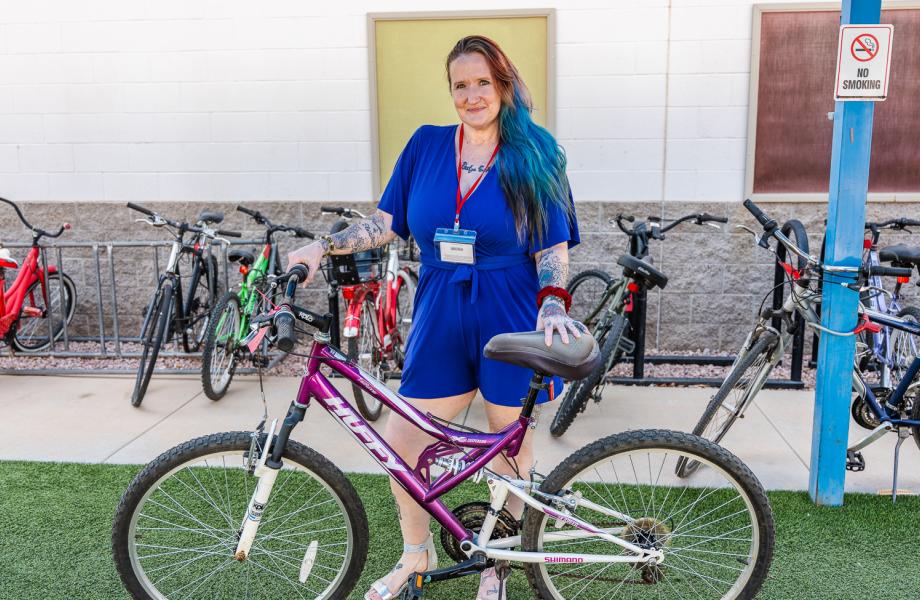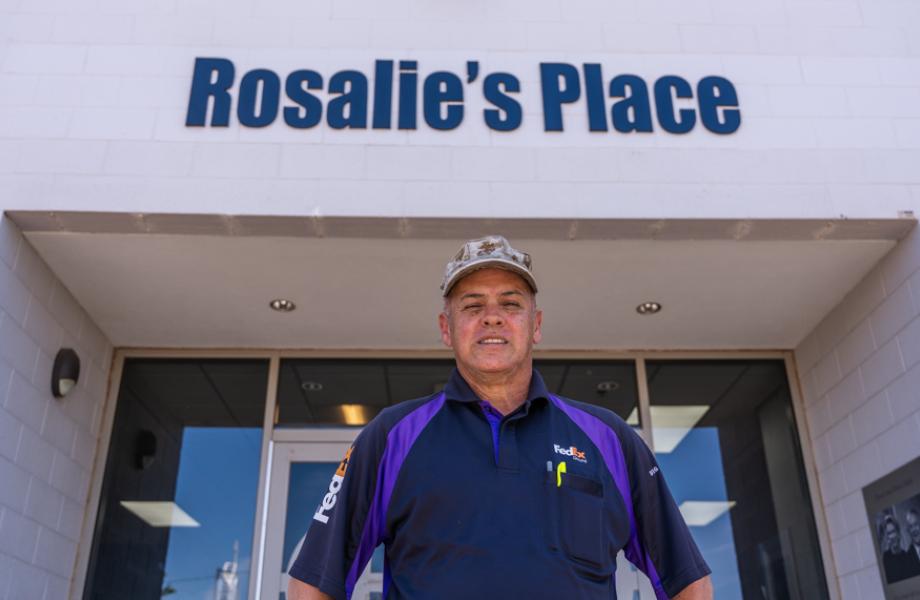He lived in a cistern. Now he's housed.
After 15 years of living on the street, Christopher Riley didn’t know if he’d ever find his way back to a home. When he found his way to St. Vincent de Paul’s transitional housing program, Ozanam Manor, for seniors, veterans, and adults living with disabilities, he was given the stability and resources to get back on his feet and is now in a new home of his own.
Right out of high school, Christopher enlisted in the United States Marine Corps and served his country for three years. He got married, had a couple of kids, and had a well-paying job. Things seemed to be going well… until they weren't. His mom passed away, his marriage fell apart, then he lost his job.
“Everything spiraled down at that point,” Christopher said. "Back then, I used to drink a lot, and the situation got me to drink even more at that point.”
That spiral led to an all-time low a little more than 15 years ago when Christopher lost everything and took to the street, which was only exacerbated by his alcoholism. Eventually, he started to use drugs as well.
Life on the street was extremely difficult for Christopher. He spent most of his time just trying to find essentials like food, water, and a place to rest where he wouldn’t be worried about being attacked.
“It’s already hard enough to find your basics, your food, water and everything else. But during the summer, when the heat goes up, it ruins what you do have,” he said. “It was camping, hardcore. It's nothing that I would recommend to anybody. It's not a good way of life."
For a while, Christopher took shelter underground in an abandoned cistern just because it was cooler than the surface.
One of the few ways he was able to find the everyday necessities was through the Valley’s annual heat relief efforts, where the state, county, city, and other nonprofit partner organizations team up to make sure water and other essentials are available to vulnerable neighbors living on the street. Christopher remembers especially relying on them through the summer months.
However, everything changed for Chris over the course of one phone call. Through some family in the Valley, Chris was connected to his 17-year-old daughter for the first time in years.
"That turned on the switch, that was what I needed," he said. "I said I'll do anything, and for once in my life, I meant it."
At that moment, he decided to get sober and rebuild his life just to have a chance at reconnecting with his daughter. He found that this was much harder in practice than in theory.
“You're already looked down upon, and you're already classified [as homeless], and that was one of the hardest things to get out of,” he said. “You get yelled at, somebody says, ‘Get a job.’ Okay, I'd love to get a job. Where? Where do I clean my clothes? Where do I clean up? Where do I get some sleep before I have to work? Where do I do any of this?”
Despite the many setbacks, things took a turn for the better when Christopher met some representatives for Veterans Affairs. When they learned he was a veteran, they got him a spot in a VA detox and rehabilitation facility, then connected him to SVdP’s Ozanam Manor, which has a number of beds set aside specifically to help veterans experiencing homelessness.
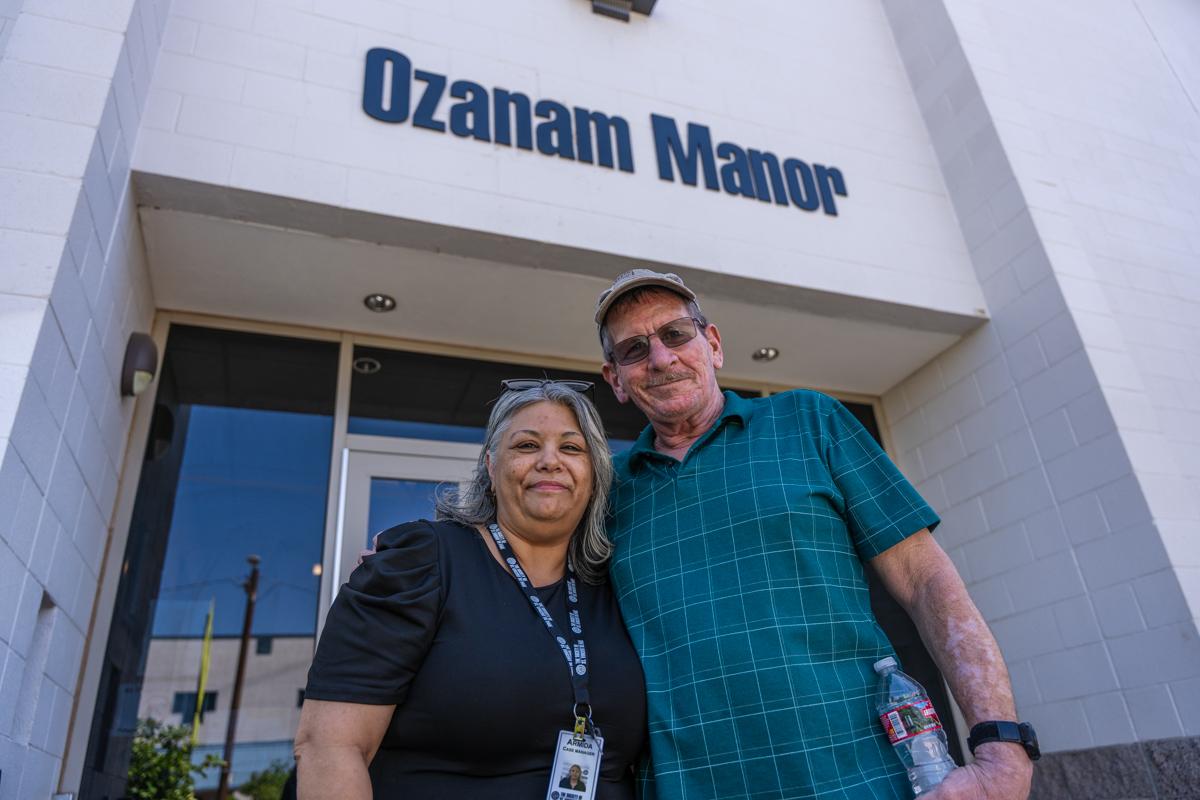
When Christopher moved into Ozanam Manor, he no longer had to worry about where he was going to sleep, if he was going to be safe, or where his next meal was going to come from. At Ozanam Manor, every resident has their own designated space and bed, access to hygiene facilities, three square meals every day, and case management to help them resolve their homelessness.
“The number one thing about Ozanam Manor is that you're indoors,” he said. “Having a roof, being fed three times a day, having water anytime you want, being cool, it’s all a big deal.”
And, of course, they offered a lot of love and compassion too.
"When I came here, they said, 'Okay, you're not a homeless guy. You're a guy that just needs a place to stay for a little while, while you get back on your feet,'” he said.
He was also quick to help out around Ozanam Manor, volunteering his time nearly every day at the front desk. He quickly became known as someone who was friendly and made a few friends that he would pass time with while waiting to hear back on rental applications. Christopher also formed a strong bond with his case manager, Armida, and who he worked with to find a solution to his homelessness.
"The part that I played in his transition was the encouragement and keeping his hope alive," Armida said. "It takes time, rehousing is a process."
Their work paid off, and after a little over two months of living in Ozanam Manor, Christopher landed a HUD-VASH housing voucher for the city of Tempe.
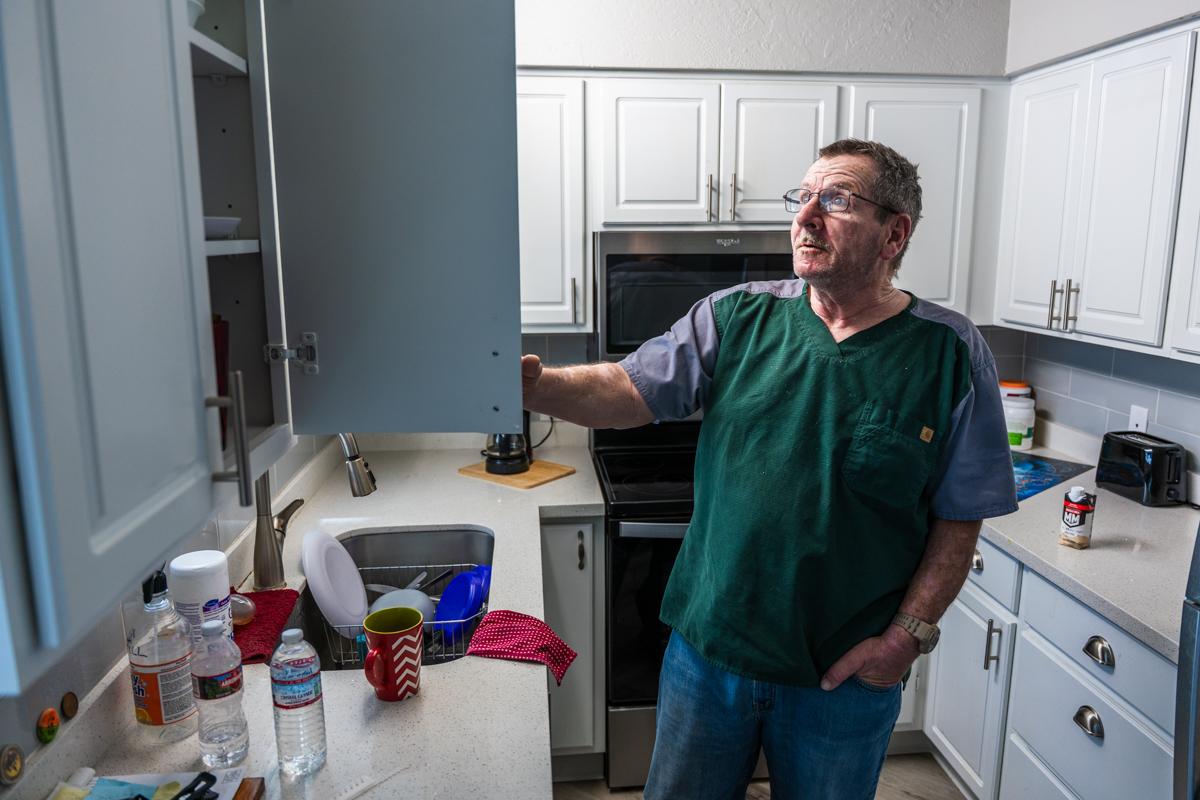
“I was stuck. And that was what I would tell people, I was absolutely stuck,” Christopher said. “Ozanam Manor gave me the opportunity to get cleaned up, to get myself back in order.”
He moved into his new place in May, and has since made it a new home. He has a couch and reclining chair, a small TV, plenty of kitchen equipment to cook for himself, and a cozy bed all his own.
“I haven't had a roof over my head I could call my own in 14 years, and that's… I can't tell you,” Christopher said, getting choked up and at a loss for words.
Christopher's future looks bright. SVdP's Bike Shop gave him an electric bike, so he has transportation, and he's been working as a cook at a Burger King near his apartment. He’s almost doing so well that he doesn’t quite know how to think about it.
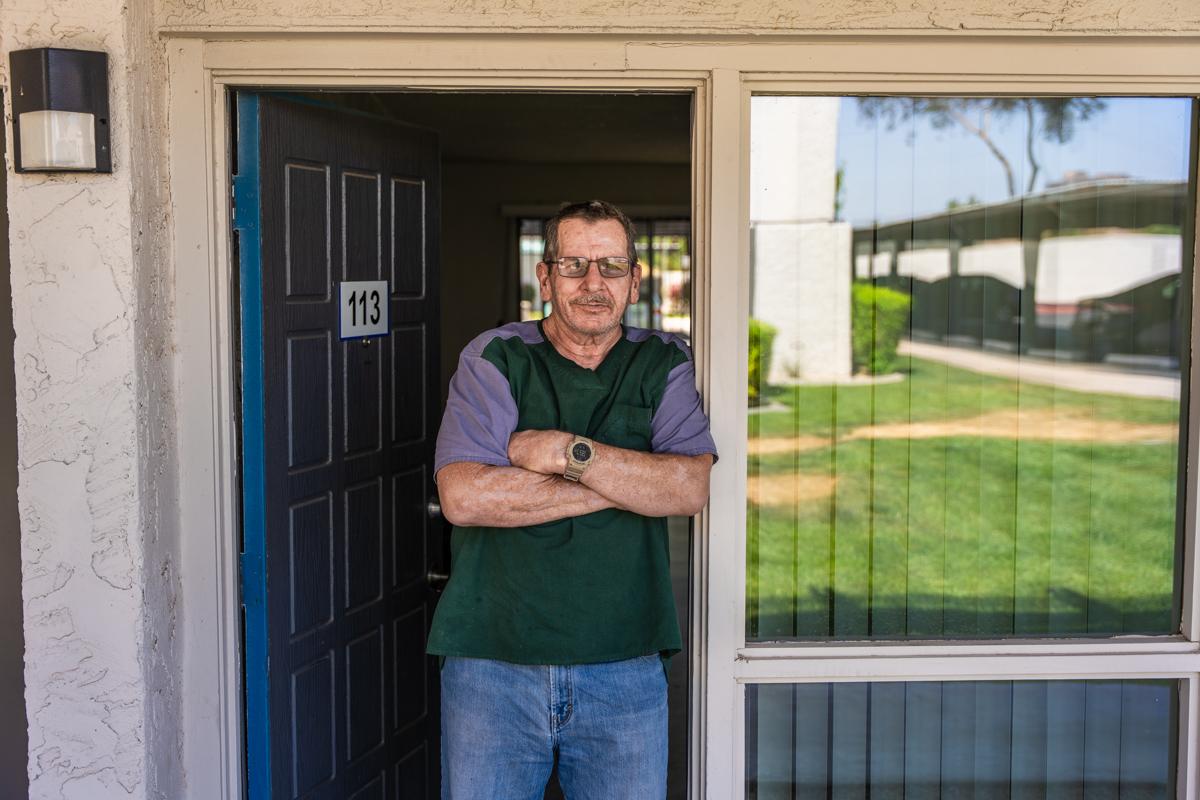
"Nobody else here knows me to be ‘the homeless guy,’ and that's huge,” he said. “It's actually hard to get used to that because now I'm just looked at it as somebody else that lives here.”
Now that Christopher is working, he doesn’t get many opportunities to return to Ozanam Manor and see all the people he made connections with, but he volunteered many hours while living on campus to do his best to give back and tries to visit when he can because he always remembers how the shelter was able to help him.
“It's given me the opportunity to get back into life, and that's where I wanted,” he said. “This is a whole new life, and I'm glad, I'm glad I have the ability to do it.”
Chris Riley's story was featured in a video at SVdP's 2025 Restoring Hope Community Breakfast.


